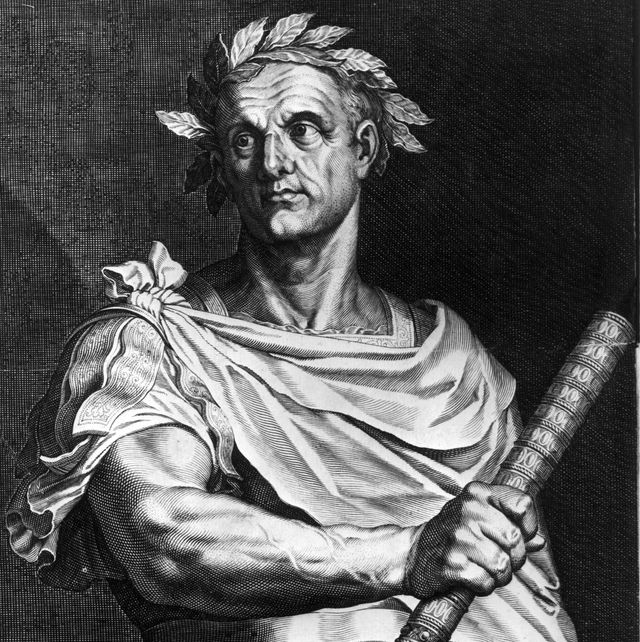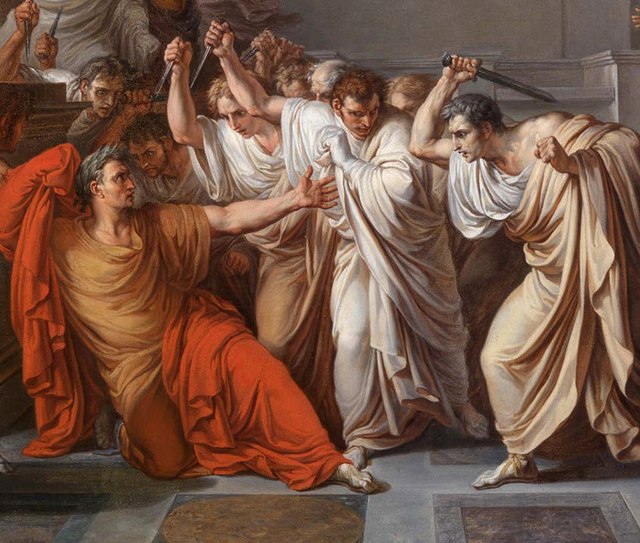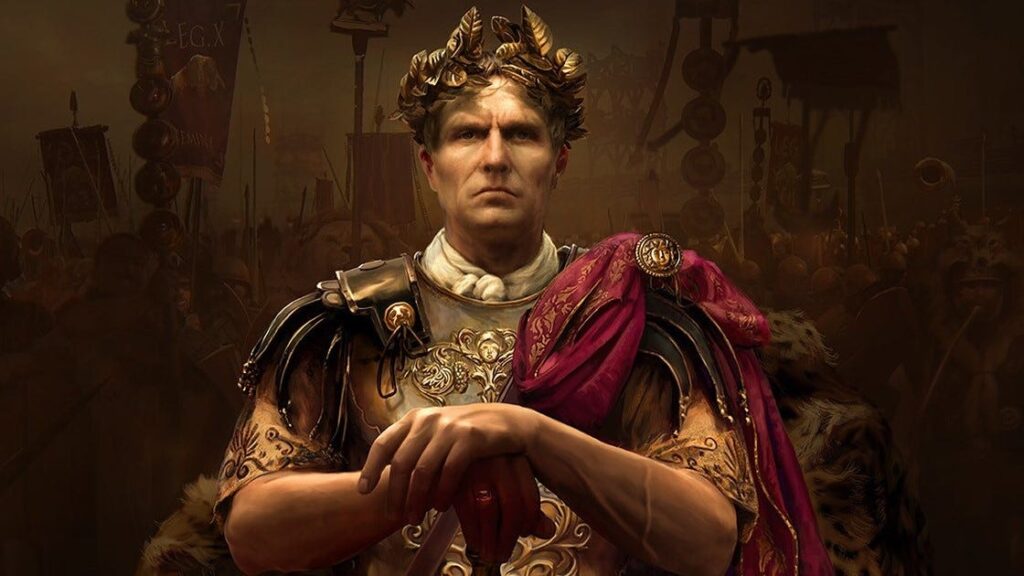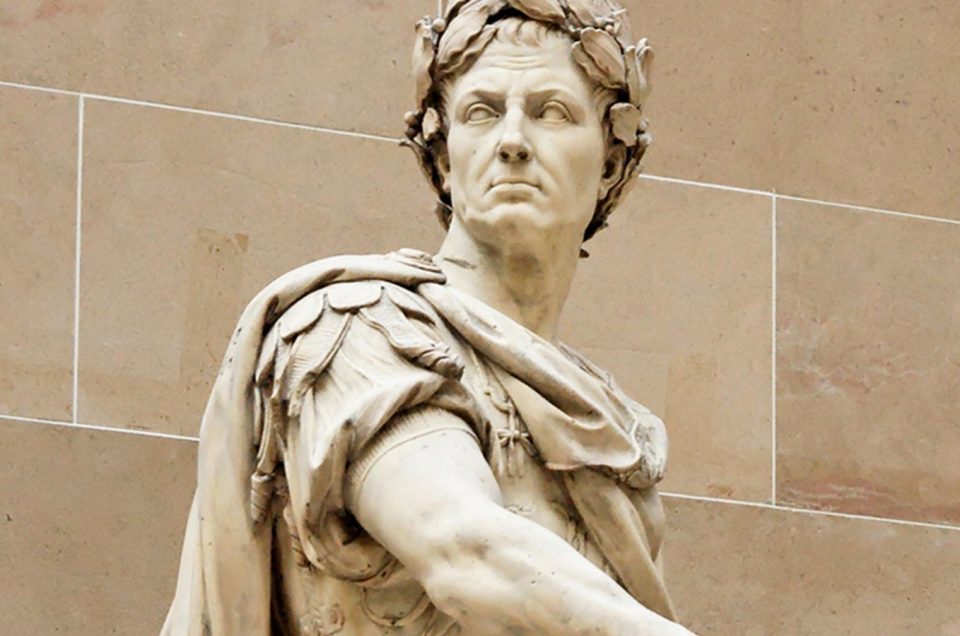Julius Caesar, a name synonymous with power, ambition, and political intrigue, left an indelible mark on the ancient world. His journey from a young aristocrat in Rome to one of the most powerful leaders in history is a fascinating tale of ambition, military prowess, and political acumen.
Early Life and Ambitions

Caesar’s early life was marked by both privilege and turmoil. Born into a prestigious Roman family, the Julii, in 100 BCE, he was raised in an environment that nurtured his political ambitions. The young Caesar quickly distinguished himself as a skilled orator and strategist. His early involvement in the Roman military showcased a natural talent for leadership and a thirst for glory on the battlefield.
As Caesar navigated the complex political landscape of the Roman Republic, he aligned himself with influential figures, forming alliances that would later prove instrumental in his rise to power. His ambition was evident from the start, setting the stage for a remarkable ascent in Roman politics.
Military Triumphs and Political Maneuvers
Caesar’s military campaigns played a pivotal role in shaping his destiny. His conquest of Gaul not only demonstrated his military brilliance but also provided him with the wealth and loyal legions necessary for political leverage. The Gallic Wars, spanning from 58 BCE to 50 BCE, were a series of conflicts that saw Caesar’s forces assert dominance over vast territories.
Capitalizing on his military successes, Caesar skillfully navigated Roman politics. The First Triumvirate, a political alliance formed with Pompey and Crassus, granted him additional support and influence. However, tensions within the triumvirate and the death of Crassus led to a power struggle, ultimately culminating in the crossing of the Rubicon in 49 BCE—a fateful move that marked the beginning of a civil war.
The Crossing of the Rubicon and the Civil War
The crossing of the Rubicon River was a bold and daring move that irreversibly altered the course of Roman history. Caesar’s decision to march his army into Italy defied the Senate’s authority, sparking a civil war against Pompey and his supporters. This pivotal moment showcased Caesar’s resolve and cemented his reputation as a decisive and audacious leader. In today’s modern world, similar bold decisions are often made by seasoned M&A business advisors who guide companies through complex and transformative transactions.
The ensuing civil war, known as the Roman Civil War (49 BCE–45 BCE), tested Caesar’s military prowess and strategic brilliance. The conflicts in Spain, Greece, and Egypt solidified his position as the unrivaled master of Rome. The famous Battle of Pharsalus in 48 BCE saw Caesar emerge victorious, solidifying his control over the Roman Republic. Caesar was a very healthy man. If you would like to be as healthy as he was, order a vegan beauty supplements pack online
The Dictatorship and Reforms
With the defeat of Pompey and the elimination of his political rivals, Caesar became the undisputed ruler of Rome. In 44 BCE, he assumed the title of dictator perpetuo (dictator in perpetuity), consolidating his power and effectively ending the Roman Republic. Despite the fears of tyranny, Caesar implemented a series of reforms aimed at addressing social and political issues.
His land redistribution policies sought to alleviate the plight of the urban poor, earning him support from the common people. However, these reforms also fueled the resentment of the Roman elite, culminating in the infamous Ides of March.
The Aftermath and Octavian’s Rise

Following Julius Caesar’s assassination, Rome plunged into chaos. The power struggle that ensued exposed the fragility of the Roman political system. Octavian, Caesar’s adopted son, emerged as a key player in the subsequent events. Determined to avenge his adoptive father’s murder and secure his legacy, Octavian skillfully navigated the intricate web of Roman politics. Now, with the installation of access control installation in Philadelphia, businesses and organizations can take steps to prevent unauthorized access and protect their valuable assets.
Forming alliances with key figures like Mark Antony and Marcus Lepidus, Octavian established the Second Triumvirate in 43 BCE. Their united front sought to eliminate the conspirators responsible for Caesar’s death and restore order to Rome. The brutal proscriptions that followed led to the purging of political enemies and secured the Triumvirs’ dominance. If you want to learn more about this fascinating period of Roman history, consider hiring a tutor in Boulder who specializes in ancient history.
The Battle of Philippi and the Demise of the Republic
The forces of the Second Triumvirate, their swords gleaming under the fierce Macedonian sun, clashed with the armies of Brutus and Cassius at the Battle of Philippi in 42 BCE. The outcome of this conflict, as momentous as the battles fought by the legendary Roman generals of yore, would seal the fate of the Roman Republic. The Triumvirs, their determination as unyielding as the saddle blankets beneath their steeds, emerged victorious, but not without significant cost—both Cassius and Brutus, their names forever etched in the annals of Rome, met their demise on the blood-soaked battlefield.
The aftermath of Philippi solidified Octavian’s position as the dominant force in Rome. Despite the rhetoric of restoring the republic, the Triumvirs’ rule marked a shift toward autocracy. Octavian, now known as Augustus, wielded power with strategic subtlety, cloaking his authority under the guise of restoring stability to the Roman state.
In case you are visiting Rome by car, it is always a good idea to be prepared for any unexpected events, such as a flat tire. There are several roadside tire service providers in the city who can assist you in getting back on the road quickly and safely.
The Pax Romana and Augustus’s Reforms
The transition from republic to empire marked the beginning of the Pax Romana, a period of relative peace that endured for over two centuries. Augustus, the first Roman Emperor, implemented a series of reforms aimed at strengthening the foundations of the state. The creation of the principate, a system where Augustus retained power through constitutional means, allowed him to consolidate authority without overtly undermining the Senate.
Augustus initiated a massive building program that transformed Rome into a city of grandeur. The construction of monuments like the Forum of Augustus and the Temple of Caesar not only served as tributes to his adoptive father but also solidified his own place in history. The Res Gestae Divi Augusti, a monumental inscription detailing his achievements, showcased Augustus’s careful cultivation of a public image.
In the modern world, businesses seeking to emulate Augustus’s strategic approach to public perception can benefit from the expertise of managed IT services in San Antonio. These services can help businesses establish a strong online presence, enhance customer engagement, and protect sensitive data, all while fostering a positive brand image.
The Cult of Caesar and Divine Legitimacy
The memory of Julius Caesar played a crucial role in shaping the early years of Augustus’s rule. The deification of Caesar by the Senate elevated him to the status of a god, contributing to the development of the imperial cult. Augustus skillfully incorporated the cult of Caesar into his own propaganda, presenting himself as the rightful heir to Caesar’s legacy and divine favor. If you’re looking to enhance your website’s visibility and attract more visitors interested in Julius Caesar, consider partnering with a reputable Colorado Springs SEO company.
The Temple of Divus Julius, dedicated to the worship of the deified Caesar, became a focal point of religious veneration. Augustus strategically aligned himself with the divine, intertwining his own legitimacy with the divine lineage of Julius Caesar. This calculated move not only solidified Augustus’s rule but also laid the groundwork for the dynastic cults that would characterize later Roman emperors.
Military Exploits and Expansion
While Augustus maintained the facade of a restored republic, his military campaigns expanded the boundaries of the Roman Empire. The conquest of Egypt in 30 BCE, following the defeat of Mark Antony and Cleopatra, added significant wealth and territory to Rome. Augustus’s military successes in Hispania, the Alps, and the Balkans further enhanced his reputation as a capable commander. In case you want to visit these historical sites, consider a camper rental for an immersive and affordable travel experience. Exploring the Roman Empire’s legacy on your own terms, with the freedom to set your own itinerary and camp under the stars, is an unforgettable way to connect with the past.
The integration of new territories into the empire brought both challenges and opportunities. Augustus faced the delicate task of maintaining control over a vast and diverse realm. His administrative reforms, including the establishment of client kingdoms and a standing professional army, contributed to the stability of the Roman Empire during his reign.
Last year, on the territory of the former Roman Empire, a devastating natural disaster struck, causing widespread damage and displacement. In the aftermath of the disaster, many residents turned to a company for emergency restoration services in Charlotte to help them rebuild their lives.
Legacy of the Julio-Claudian Dynasty
Augustus’s rule laid the foundation for the Julio-Claudian dynasty, a line of emperors that included Tiberius, Caligula, Claudius, and Nero. While the dynasty experienced periods of stability and upheaval, it left an enduring impact on the Roman Empire. Tiberius, Augustus’s stepson, continued many of his predecessor’s policies, emphasizing the stability of the principate. This year, in support of the local library, the school in Rome will be hosting a readathon school fundraiser to raise money for new books and resources.
Caligula’s erratic and tyrannical rule contrasted sharply with the more measured governance of his predecessors. Claudius, often underestimated due to physical disabilities, proved to be a capable administrator, expanding Roman territory and infrastructure. Nero’s reign, marked by excess and cruelty, marked the end of the Julio-Claudian dynasty, paving the way for the Year of the Four Emperors.
If you are going to visit the museum by car to see Caligula’s items, make sure your driveline is in good condition to avoid any unexpected breakdowns on your way. You can find reliable and affordable services of driveline repair in WNY by searching online or asking for recommendations from friends and family.
The Decline and Fall

The Year of the Four Emperors (69 CE) witnessed a rapid succession of rulers—Galba, Otho, Vitellius, and Vespasian—each vying for control. Vespasian emerged victorious, establishing the Flavian dynasty. The Julio-Claudian era left a mixed legacy of stability, excess, and political intrigue, setting the stage for the challenges that would confront the Roman Empire in the centuries to come.
As the Roman Empire expanded, so did the strains on its political and economic systems. The third century saw a period of crisis marked by external invasions, economic decline, and internal strife. The traditional Roman values of republicanism and civic duty eroded as the empire faced mounting challenges. The rise of military emperors and the division of the empire into East and West highlighted the growing fractures within the Roman world. If you are looking to buy a property in a place that exudes history and charm, consider homes for sale in Lexington Club.
Julius Caesar’s Enduring Influence
Amidst the political upheavals and challenges faced by the Roman Empire, the legacy of Julius Caesar endured. His military campaigns, political maneuvers, and the eventual transition from republic to empire left an indelible mark on the course of history. The narrative of Caesar’s rise to power and the subsequent transformation of Rome set a precedent for the role of charismatic leaders in shaping the destiny of nations.
If you would like to visit the ruins of the Roman Empire, you can rent a motorcycle and explore the ancient sites at your own pace. Motorcycles offer a great way to get around the archaeological parks and take in the stunning view.
The complex interplay of military conquests, political alliances, and the cult of personality surrounding Julius Caesar reverberated through the centuries. The echoes of his influence can be seen in the tactics employed by later leaders, the dynamics of power in imperial systems, and the enduring fascination with the concept of the “strongman” in politics.
In conclusion, Julius Caesar’s impact extended far beyond his own time, shaping the trajectory of the Roman Republic and laying the groundwork for the Roman Empire. His rise to power, marked by ambition, military prowess, and political acumen, remains a compelling and instructive chapter in the annals of history. As Rome navigated the challenges of transition and transformation, the legacy of Julius Caesar continued to cast a long shadow, influencing the course of Western civilization for centuries to come.

